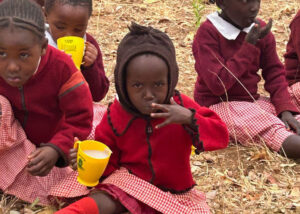
Betty Kibaara — Director of Food Initiatives, Rockefeller Foundation
Leading the Foundation’s investments in Africa, transforming food systems for children that increase access to nutritious foods.
Global
Monica Janvier January 20, 2021
Since 1993, Global Greengrants Fund has created a more equitable world by supporting environmental grassroot causes across the globe—in Africa, Asia, Latin America, North America, and the Pacific Islands. For example, the Fund influenced bans on plastic bags in Uganda, the passing of forest protection laws in Mongolia, and the creation of more marine conservation areas in Chile. Across the globe, grantees have restored forests, sustainable farms, and coral reefs. The Fund has made over 14,000 grants (worth more than $100 million) in 168 countries.
As one of the leading organizations in the world, Global Greengrants Fund’s global network of activists and donors have impacted the lives of millions of people, while prioritizing the health of communities and the environment. Instead of dictating an agenda from afar, the Fund trusts and invests in local leaders, letting local people take the lead in advancing solutions and strategies best suited for their way of life.
President and CEO Laura García is a self-described Mexican feminist and a passionate advocate for justice. Her experience in environmental grassroot causes and her leadership in gender justice has influenced the Fund’s intersectional lens on environmental justice. While protecting the rights of people and their way of life, Global Greengrants Fund is on a mission to protect our shared planet and work toward a more equitable world.
Mood of Living: Where did you grow up?
Laura García: I was born and raised in Mexico City.
MoL: Where did you go to school? What did you study?
LG: I went to different schools throughout my academic life. I did my primary school in a Montessori school, then went to a boarding school in Kent, England for a year, and then did all of my middle and high school in an American School in Mexico City. I then attended El Colegio de Mexico, and finished my degree in France, at Sciences Po. Finally, I did my masters studies in King’s College in London.
Guatemala, President and CEO, Laura García
MoL: What led you to have a career in environmental justice and social activism?
LG: I’ve always been interested in human rights and inclined toward social justice issues and as my career began, I realized that working in the civil society sector, for me, was the best option to contribute to improving human rights and social justice issues. I started understanding and learning more deeply, the work of social justice activism and the enormous impact that it has in the world. In parallel, I’ve always been interested in environmental justice and I think what led me to move my career toward that path is the realization that environmental justice is probably the most important issue that we need.
MoL: What influenced your passion for justice and activism?
LG: Because I’ve always been worried about injustice and oppression, getting to know stories of change became not only something that inspired me professionally but helped me to deal with my frustration and sadness of looking at a troublesome and unequal world. What influenced my passion was the realization that these issues can in fact be reversed or improved by collective organizing, and people’s ability to take back power and solve a situation instead of feeling overwhelmed and disempowered. The power of social activism is what inspires me to keep doing the work I do.
MoL: What is the Global Greengrants Fund and its mission?
LG: We at Greengrants work for a future in which all people live with dignity and in harmony with the environment. Greengrants’ mission is to mobilize resources for communities worldwide to protect our shared planet and work toward a more equitable world. Our vision is to achieve global environmental justice, rooted in cultural integrity, led by communities and grassroots movements.
MoL: What is environmental justice? How does the Fund solve environmental harm and social inequity?
LG: Every person on Earth, regardless of their personal identity (ability, age, color, gender, income, race, nationality, sexuality, etc.) has the right to a clean and healthy planet. Marginalized, under-resourced, and vulnerable communities pay the highest price when it comes to the disproportionate burden of pollution and dirty development. Global Greengrants Fund mobilizes resources to those communities aiming to protect both the planet and their rights.
MoL: Where does the Global Greengrants Fund work across the globe?
LG: We work in Africa, Asia, Latin America, North America, and the Pacific Islands. You can visit our Where We Work page to read specifics on our work in these regions.
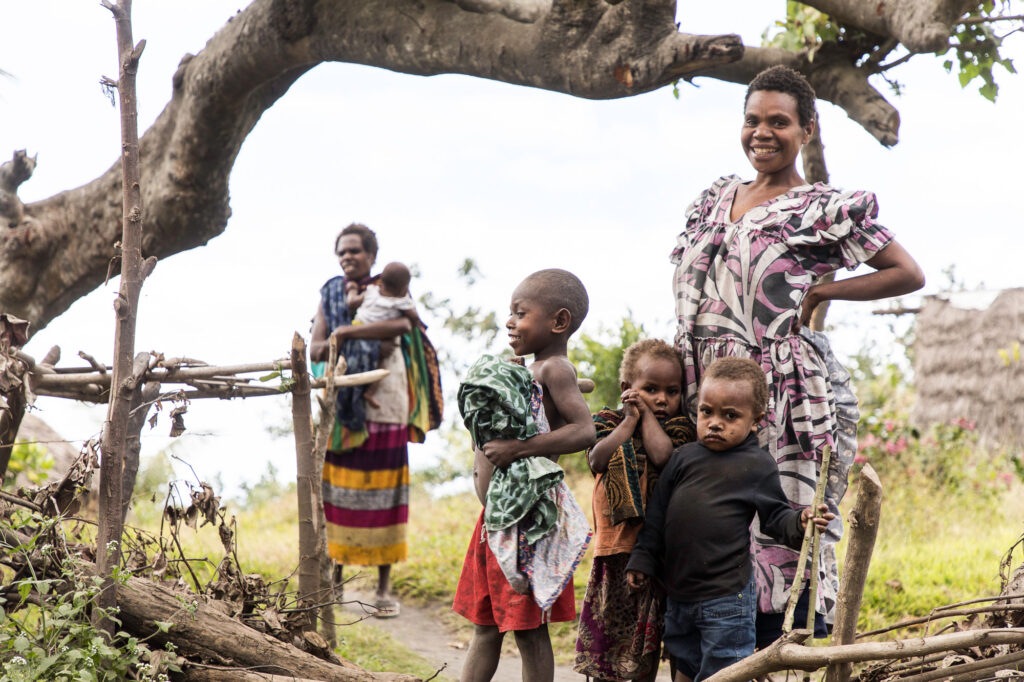
MoL: What are some of your responsibilities as President and CEO of this fund?
LG: I have to make sure that our work and strategies are aligned with the mission of the organization. I also have to ensure that we mobilize enough resources to continue doing our work with transparency and in an orderly way. That way, we are able to continue strengthening the organization and make sure that it is well managed and runs smoothly. I am responsible for ensuring that our work is well contextualized and that we get prepared to overcome the obstacles that we face as we move forward with our work.
MoL: What are some challenges you face under your position? How do you overcome these challenges?
LG: Right now we are all facing the challenge transitioning to virtual work and getting to know everyone virtually as opposed to an in person office. I’ve created spaces where we can discuss who we are and connect in a way where it’s not just about work related issues, but also about understanding who we all are on a more human level.
Another is that, because we are facing the uncertainty of the economy and a context of political volatility, a way I have addressed these challenges is by encouraging the team to think outside of the box, and for the organization to adapt with flexibility to this uncertainty and volatility, as well as to seize opportunities to be able to thrive during moments like these all while continuing to support grassroots organizations and social movements around the world.
MoL: What specific challenges do women face in your industry?
LG: Historically, the environmental movement in the US and other parts of the world were divided and the large organizations that had the possibility of influencing, advocating and being the most visible, have been led by men. So, for women and other people facing structural inequalities, it has been important to take space and raise a voice and to make the environmental conservation and justice movement more accessible and equitable. That being said, this sector today has a lot more women than it had before but we still face, as women, structural challenges of the inequality and inequity.
MoL: As a woman of color in an executive role, what advice can you give to women seeking leadership roles in the nonprofit world?
LG: With my recent transition to the US, I have noticed the cultural and contextual differences between that of Mexico and the US, especially when it comes to the social constructure of identities, political language and rhetoric, with the added complication of translation and meaning. What I find more interesting is that, with my perception, by transitioning into this new culture I am beginning to see, with more clarity, how artificially constructed these identities can be, and just how fluid they are. In other words, my Spanish heritage in Mexico means something very different with regards to my color, and the social position attributed to it, than what it means when I am in the United States.
Regarding advice, I would say that perhaps, any leader needs to have a lot of self-awareness to know that they cannot really achieve anything without the support and trust of others around you. You need to remain aware of communicating your ideas well, listening openly to other suggestions, and extending help to receive it. As a woman leader, it especially helps to grasp an understand of all of the cultural and social expressions of gender inequality to be able to overcome and confront those gaps. Understanding these issues makes you intensely aware of the obstacles that you will face. Being aware of this inequality is a very powerful tool for women leaders.
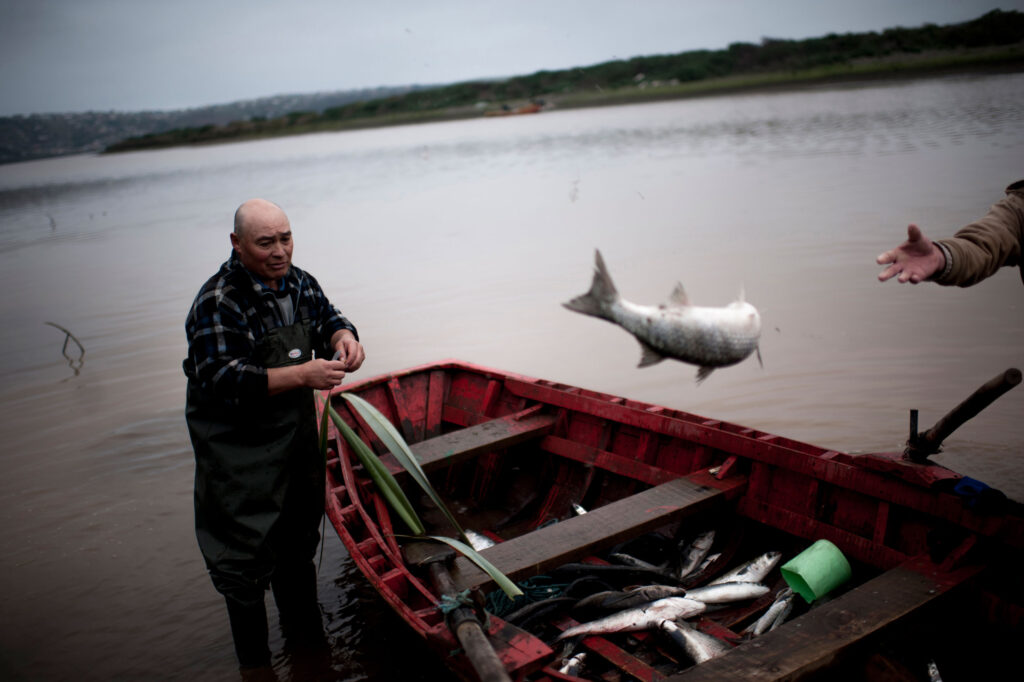
Chile, Kelp Project
MoL: Why does the Global Greengrants Fund let local people take the lead? What are the benefits of this?
LG: We believe that people at the local level have the best solutions to the problems they face, because when local people have a say in the health of their food, water, and resources, they are forces for change. There is no one more equipped to understand a problem in a community and its solution than a person from that community because they are experiencing that problem in a direct way and they have the knowledge of how that community works to therefore design solutions that respond to that local knowledge.
MoL: The Global Greengrants Fund has benefited remote communities across the globe. What are some of these communities? How were they positively impacted?
LG: We have had the incredible opportunity to support many remote communities this past year, two of which being The Tuvalu Red Cross Youth Network in Tuvalu and Koo Tumi’i in Mexico.
The Tuvalu Red Cross Youth Network (TRCYN) received a grant to create an online Climate Training toolkit called Y-adapt for youth peer educators in Tuvalu. The Y-adapt toolkit will include downloadable presentations, games, activities, videos, and reading materials to support and inspire climate action, with a focus on building resilience to extreme weather events. All materials will be inclusive of people with disabilities and the LGBTQI+ community. The group will also host events for youth interested in organizing around climate change adaptation, including mangrove planting to reduce land erosion and flooding, and a plastic clean-up campaign.
Koo Tumi’i in Mexico is using a grant to revitalize their community market with the hope of increasing the cultivation and consumption of local foods, especially those tied to the culture and identity of the Mixtec Indigenous People. The women of Koo Tumi’i have been concerned by their community’s growing reliance on imported foods, especially highly processed foods, which are impacting people’s health, leading to a loss of local foods sovereignty, unraveling the community’s connection to its culinary traditions, and increasing the community’s carbon footprint. The organization will use this grant to install tarpaulins, trash cans, and a broadcasting system at the site of the market, to make the market comfortable for vendors and shoppers during the heat of the day. The organization will also use the grant to begin the communal production of seta mushrooms for sale at the market. Finally, the group will host workshops for farmers on the creation and use of organic fertilizer, establishing a community garden, the growth of local economies, and gender equity. Although this work began before the outbreak of the COVID-19 pandemic, it is important to note that local food sovereignty is a key piece of community resilience in the face of the pandemic, and other disasters that cause disruptions in large-scale food supply chains. Small, rural communities are the most likely to suffer food shortages during these events, unless they have local food economies.
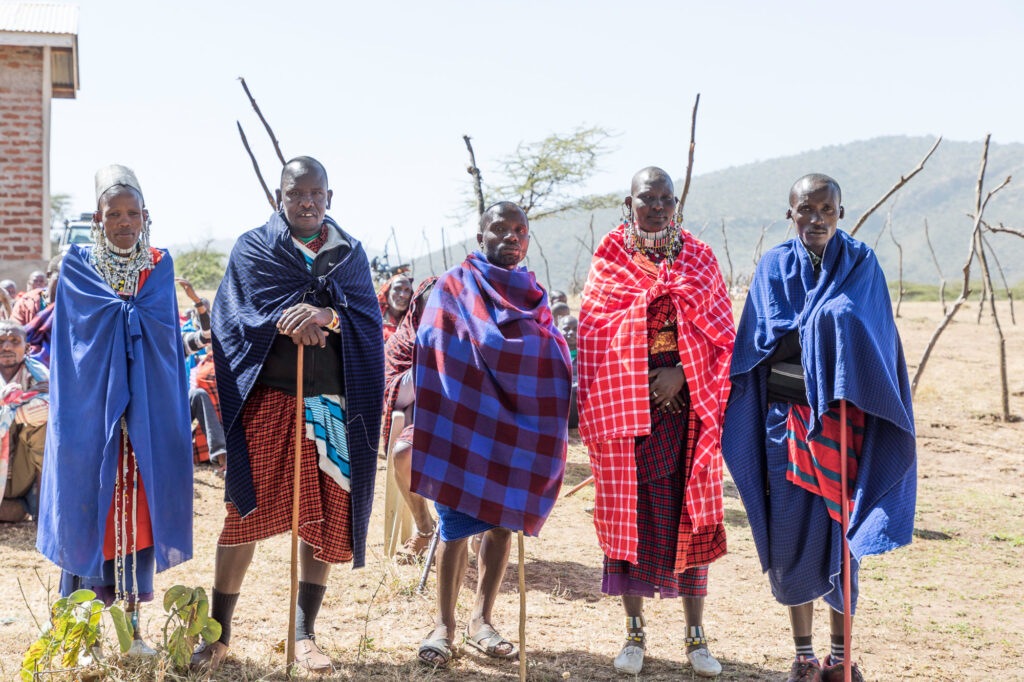
MoL: Can you tell us about a recent successful project funded by the Global Greengrants Fund?
LG: I’ve got two for you! First, Portugal’s last two remaining fossil fuel extraction contracts were canceled, halting all oil and gas drilling across the country. Also in September, ZELA’S (Zimbabwe Environmental Law Association) hard work paid off when Zimbabwe banned the development of coal mines in national parks.
MoL: As a self-described Mexican feminist and with your background in gender justice, how have you and the Fund provided an intersectional lens on environmental justice?
LG: We have always supported women led organizations, however, in the past few years, understanding the structural inequalities of women, we made the decision of creating a program that focuses and gives more visibility and intentionality in the work of women environmental defenders. As with any other systems that create inequality, at Global Greengrants Fund we understand that we have the opportunity to contribute toward a more just diversification of resources in philanthropy so that marginalized groups can have more access to resources and help to amplify their voices. The program has progressed to the point where up to 70% of our grants are granted to women-led organizations.
MoL: How can readers support the Global Greengrants Fund?
LG: I would love to encourage readers to engage with our social media! You can find us on Instagram @globalgreengrants, or on Facebook by clicking here. We also post frequently on our blog where you can stay up to date with what we’re doing. I also would like to encourage readers to donate if they can, but to understand that donating is another way of engaging in social activism and becoming part of a community that drives change.
Photography courtesy of:
Vanuatu, Tanzania – Elizabeth Weber. Indonesia – Martin Westlake. Guatemala, Federica Armstrong. Chile- Fernando Rodriquez Chanks

Leading the Foundation’s investments in Africa, transforming food systems for children that increase access to nutritious foods.
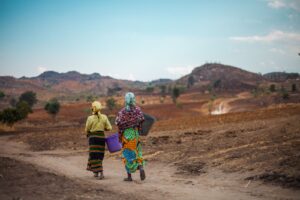
charity: water — A non-profit organization founded in 2006 by Scott Harrison.
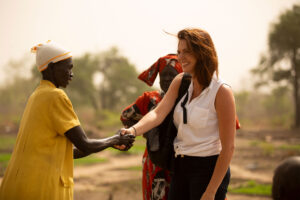
Founder Treana Peake, supports artisan partnerships and funds development work through the Obakki Foundation.